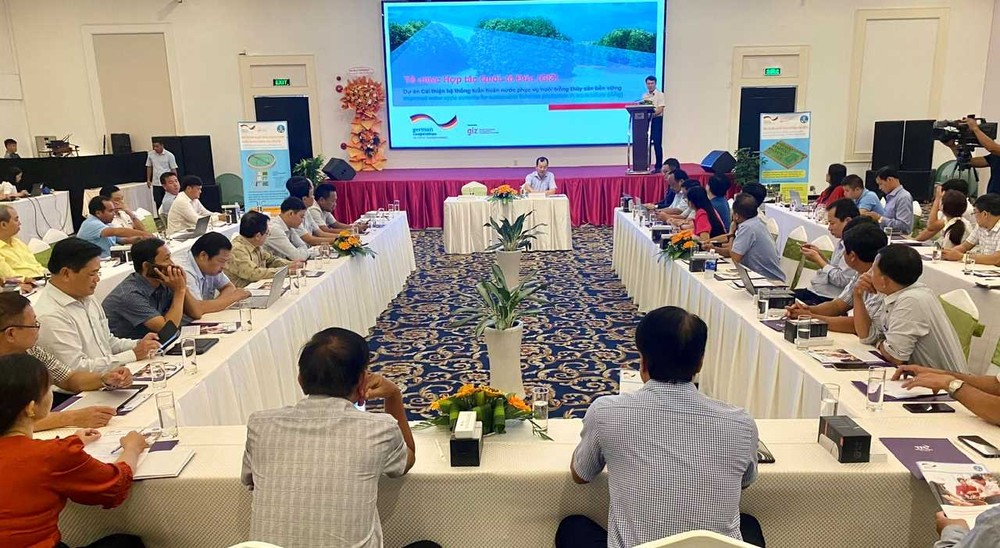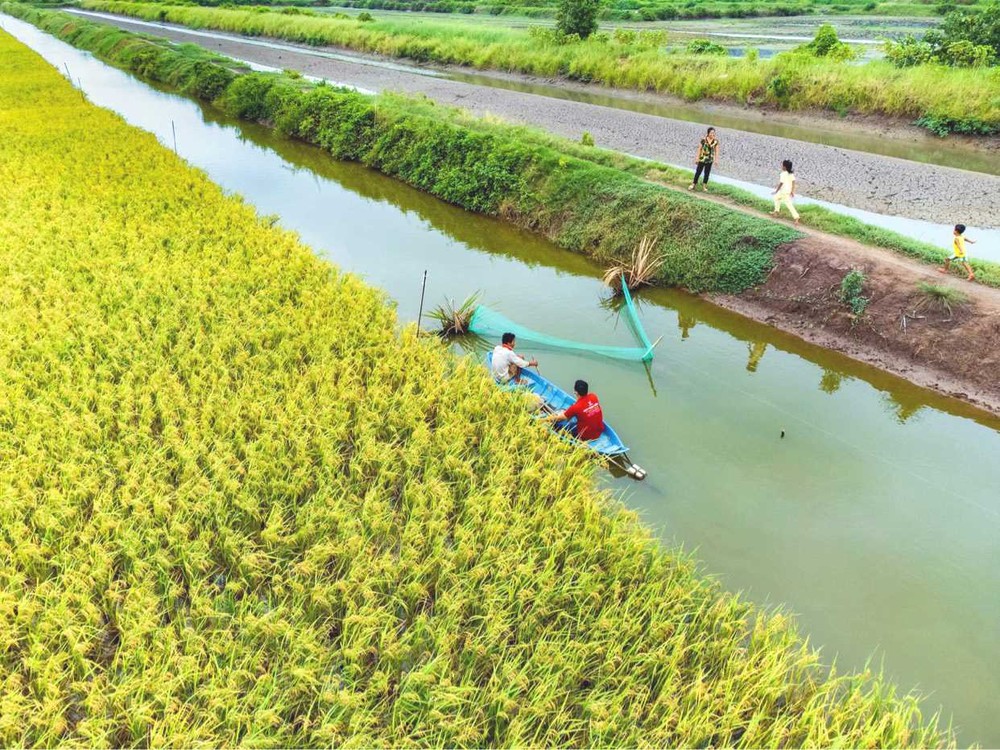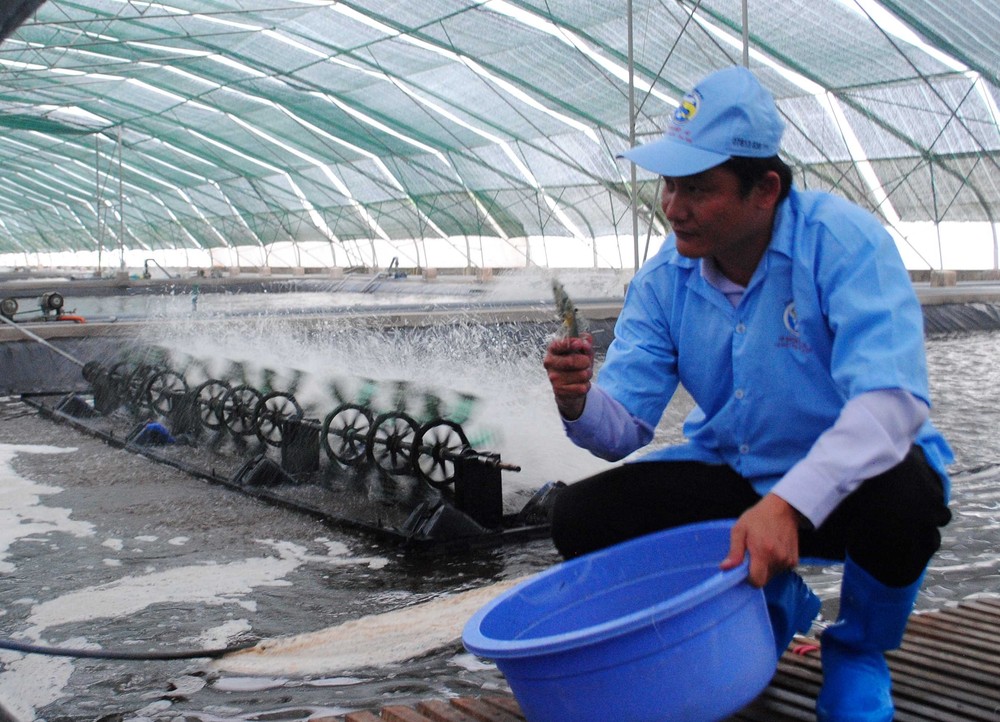
The event was organized by the German Agency for International Cooperation (GIZ) in collaboration with the Directorate of Fisheries under the Ministry of Agriculture and Rural Development.
Attending the seminar were representatives of the central and local management agencies from 30 cities and provinces, research institutes, universities, shrimp industry associations, and businesses nationwide.

According to the Department of Quality, Processing and Market Development under the Ministry of Agriculture and Rural Development, total aquatic output neared 7.9 million tonnes in the first ten months of 2024, up 2.5 percent compared to the same period last year, including 1.1 million tons of shrimp presenting a year-on-year increase of 5 percent.
Vietnam's shrimp export sector annually contributes about 40 percent of the country's total seafood export value equivalent to US$ 4 billion. The industry is currently facing numerous challenges such as climate change, environmental pollution, disease outbreaks, and various risks. The seminar provided cooperation opportunities between stakeholders to implement technological solutions to protect the ecosystem and build a sustainable future for the shrimp industry in the Mekong Delta.

According to Mr. Tran Dinh Luan, Director of the Directorate of Fisheries, innovation, and creativity is the key to promoting a circular economy in the seafood industry. It not only creates sustainable economic value but also contributes to environmental protection and the establishment of a green ecosystem for the future. This is the inevitable path for Vietnam's shrimp industry to affirm its position in the international market.
Speaking at the seminar, Mr. Ngo Tien Chuong, Head of the GIZ Fisheries Group introduced innovative solutions currently being piloted in Soc Trang and Ca Mau provinces.
He emphasized that the closed-loop shrimp farming system has helped save and control water quality, reduce disease outbreaks, increase productivity, and minimize negative environmental impacts. The improved shrimp-forest farming model has enhanced the survival rate of juvenile shrimp, and improved water quality and natural feed to strengthen productivity.
Experts and delegates pointed out that it needs to enhance research, investment, and development of circular economy technologies in accordance with the model that combines research institutions and businesses. It should also focus on scientific research and technology for sewage sludge treatment, the use of renewable materials, natural resource reduction, greenhouse gas emission reduction, diversification of value-added products, creating incentive mechanisms and policies to encourage the participation of stakeholders, especially businesses, in the circular economy value chain.
























